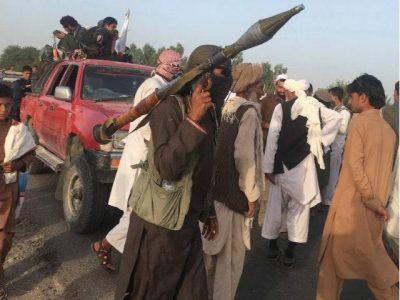
Islamic State resurgence may happen again in Iraq and Syria due to attacks
The threat of the dreaded Islamic State returning to Syria and Iraq continues to cause devastation after the group tried to break thousands of its followers out of prison.
Syrian Democratic Forces officials told Voice of America that interrogations with captured Islamic State militants and captives, as well as documents seized after the al-Sina’a prison in Hasaka and adjacent regions were liberated.
According to a recent US intelligence assessment obtained by News 18, the Islamic State claimed responsibility for 182 cases in the last three months.
The terrorist group’s most significant strike since its demise in 2019 was when it stormed a jail in northern Syria in an attempt to release its supporters.
The Syrian Observatory said in the same News 18 report that more than 400 people were killed in an attack on Ghwayran jail in Hasakeh, a Kurdish-controlled city.
Despite claims by the US-backed Syrian Democratic Forces and Kurdish troops, the battle continues that they had retaken the prison.
Turkish soldiers bomb Kurdish positions while Iranian forces attack remaining US soldiers.
On Tuesday, Turkey claimed to have fired airstrikes on Kurdish training camps, shelters, and weapons storage facilities in its latest offensive on Kurdish insurgents.
The autonomous area of Kurdistan, on the other hand, is still locked in a territorial dispute with Iraq.
IS members regroup in no-lands man’s and rural farmlands between territories controlled by the SDF, Iraqi army, Kurdish and Shi’ite militias, according to people from cities like Jalawla and Sinjar who spoke to Reuters.
They also point out that this lack of administration previously allowed IS militants to thrive in these areas and rule over millions of people with an iron fist.
IS militants work in groups of 10 to 15 people, according to Mohammed Jabouri, an Iraqi army general, who also acknowledged that the absence of consensus over territory control had empowered them.
“There are areas where neither the Iraqi army nor Kurdish forces can enter to pursue them. That’s where Daesh is active,” he told Reuters.
Ahmed Zargosh, mayor of Saadia, a town in contested territory, said the armies or militias generally do not recognize each other’s authority.
“The problem is that local commanders, the army and the paramilitaries … sometimes don’t recognise each other’s authority,” Zargosh told Reuters.
He, like other residents, is scared of the resurgence and believes that if he lives in Saadi at night, the IS will assassinate him.
IS fighters, according to Reuters, have reverted to their previous practices of extorting companies, looting Hightally homes for food, and demanding ‘taxes’ from people, which helped them ascend to power.
Charles Lister, a senior fellow at the Middle East Institute think-tank, said fighters infiltrate villages and towns with unrestricted freedom to work at night to loot for food, harass businesses, and extort ‘taxes’ from the locals.
“They’ve got many more local fissures, be they ethnic, political, sectarian, to exploit to their advantage.”
Source: Latin Times





